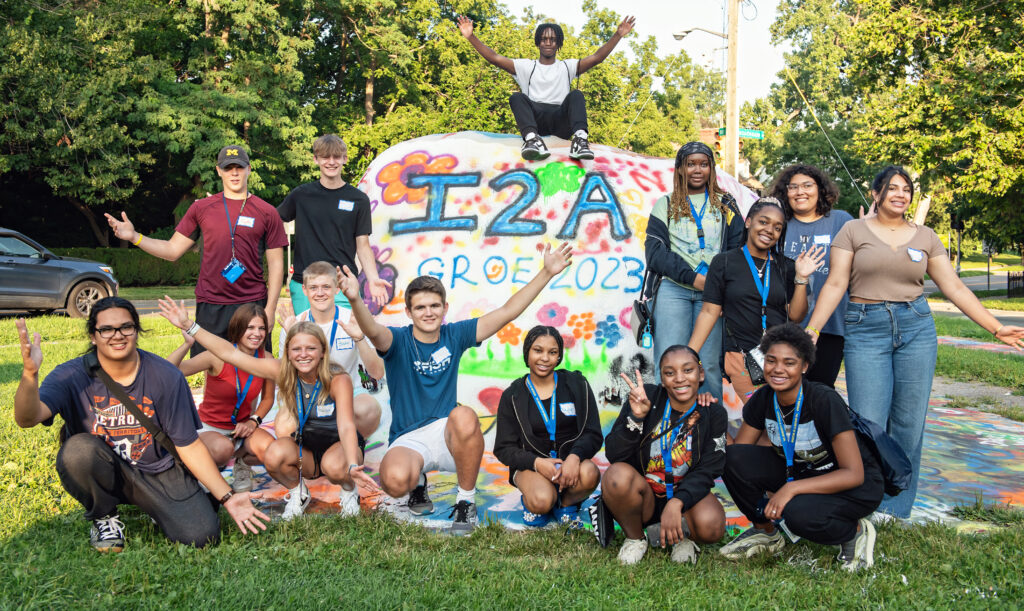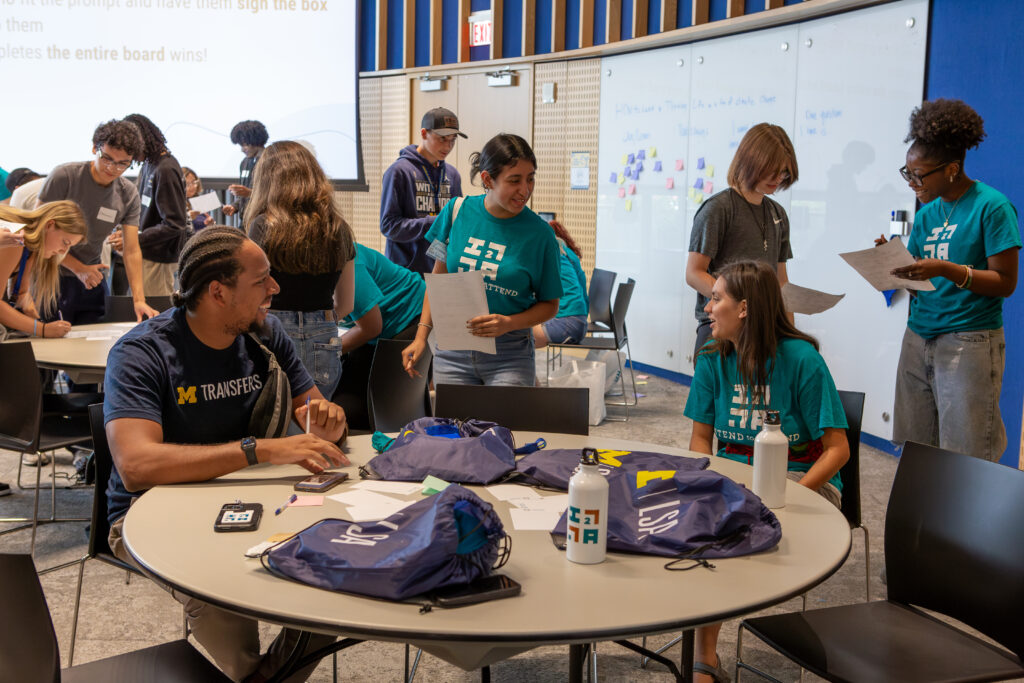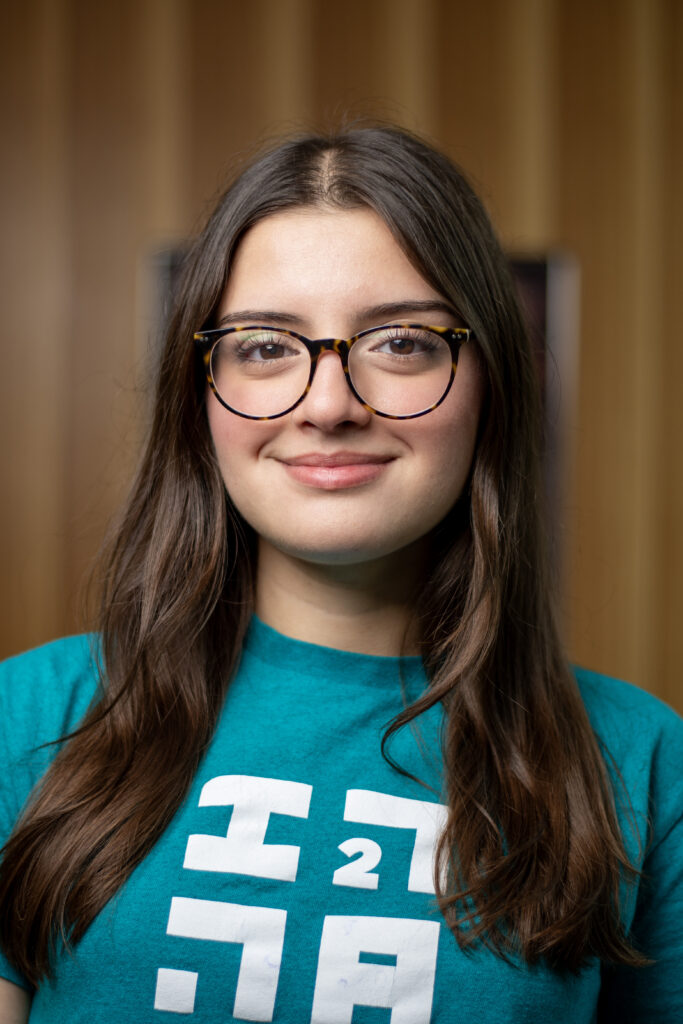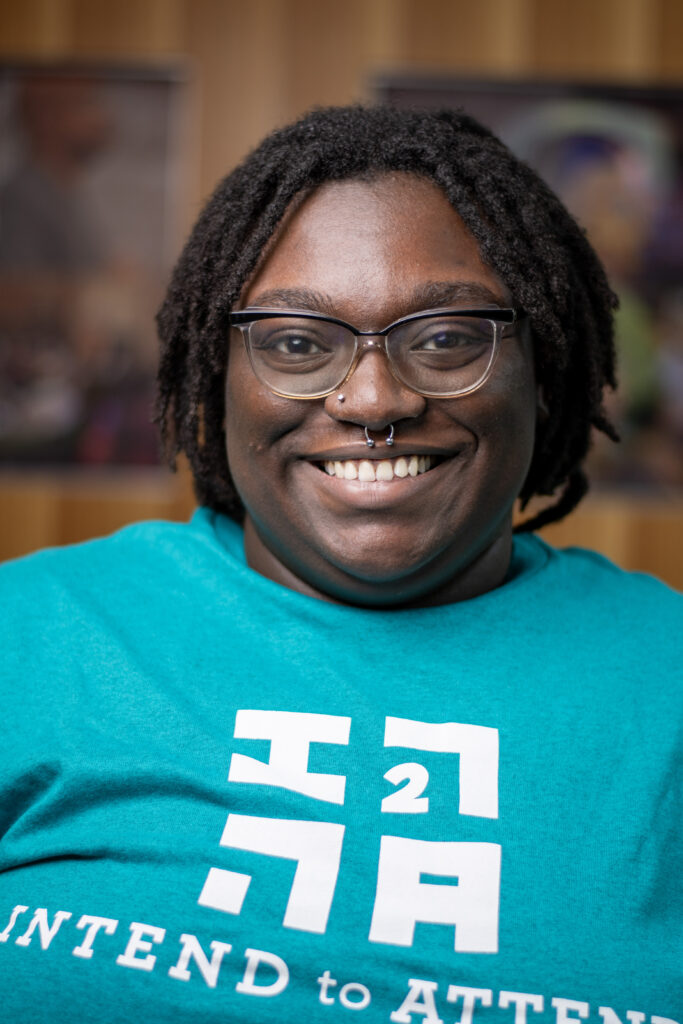
Intend to Attend helps students understand their post-secondary options using ed tech from CAI and student ambassadors who provide guidance, answer questions
Sean Corp, Communications Lead
What’s next after high school? Answers to that question are as unique as the students in every graduating class. The Intend to Attend (I2A) program at the University of Michigan works to help those students decide their next steps through a combination of resources, immersion programs, and personalized coaching. While based at the university, the goal is to help students find the path that makes the most sense for them, whether that is attending a four-year college, community college, vocational school, or entering the workforce.
Targeted at students in 8th-12th grade, I2A provides support to students, particularly those in under-resourced schools and first-generation students. These students often navigate a lack of school support and parental understanding of the full scope of educational opportunities, financial support, and application processes associated with post-secondary education.
I2A has four staff members, two of whom are dedicated full-time to the program, and a team of undergraduate student Ambassadors. Meeting the needs of supporting students in a state that is expected to graduate more than 90,000 students this year with a student-to-counselor ratio of 600-to-1 requires dedication, passion, and technology tools that allow them to reach students at scale.
Digital Tools Providing Tailored Support at Scale
The I2A team relies on digital tools created at the Center for Academic Innovation, to help deliver tailored, relevant information to students when they most need it. The team also does it with the help of 16 student ambassadors who share their personal lived experiences with other students. Often, the ambassadors were in the very same shoes as the students they advise. They know what it means to navigate life after high school in an under-resourced school without being able to rely on a lot of institutional support.
“It is all about empowering students,” said Alexa Lynch, project manager for I2A. “We want them to feel like they have the information and resources they need to make the best post-secondary choice for themselves while also being empowered by seeing themselves in places maybe they thought were not possible, like the University of Michigan, by hearing the stories of current students who look like them, sound like them, and can relate to the challenges they face.”
Lynch and Anna Cools, Information and Innovation specialist at I2A, teamed with behavioral scientists and the educational technology team to better understand how the center’s educational technology tools could empower students with relevant information while also creating opportunities to scale up to potentially reach thousands of students all over Michigan.

ECoach is a personalized feedback tool for U-M students designed for large lecture classes when one-on-one instruction is impossible. Together, the I2A team and center worked to deliver personalized messages to pre-college students and their parents or guardians. The tool would deliver a series of targeted, tailored messages in crucial parts of the year to remind them of deadlines, resources, eligibility requirements, and better understand application processes.
Currently, ECoach sends students approximately 13 targeted text messages or emails related to post-secondary options, financial aid, completing the FAFSA, wellness in high school, and preparing for college. Each message is tailored based on the students’ specific situation and interest areas.
They also adapted Lettersmith, a writing support tool that provides structured feedback to students. The I2A program designed customized templates and messages for items such as college essays, personal letters, brag sheets, and cover letters.
“I love Lettersmith because it gives them guidance on format and structure, but it also encourages them to use their own voice,” Lynch said. ”They don’t have to sound a certain way or share a certain type of story. They can share their story in a way that resonates with those reviewing the essays, and that is also a form of empowerment.”
Student Ambassadors Share Their Lived Experiences
Lynch and Cools worked closely with the center’s team and I2A’s student ambassadors to ensure that the customized instructions and templates in Lettersmith were understandable and relevant to high school students. They also relied on the ambassadors to help write the targeted messages sent via I2A’s ECoach to encourage students to explore their options, connect with resources, and stay on track.
“Our ambassadors were integral in helping us define the mission and vision of our program, and to help us understand how to connect to the needs of high school students today,” Cools said. “They have been there. They share their experiences and it resonates with the students we work with because these are students who applied and were accepted to U-M who are also first-gen students, or transfer students, or from cities like Detroit or in the U.P. just like them.”
The ambassadors say they got involved with I2A because they can recall not having much support in their high schools, and not feeling like they had a sense of their options.

“I’m first gen, so I didn’t really know the whole college thing,” said Gaby Gaytan-Aguirre, an I2A ambassador from Ypsilanti currently majoring in sociology and Spanish. “I felt like I didn’t have the support I needed in high school, and I felt like students who need support could see themselves in me, and I could tell them what was possible.”
Alexis Harris, a fourth-year student studying computer science and cognitive science from Detroit, related to that lack of support.
“I just felt like I was told I should research everything on my own, and I wasn’t sure where to turn,” Harris said.
Both Gaytan-Aguirre and Harris said they joined the I2A team because they know how powerful a little support can be. They also enjoy working with other student ambassadors to help conceive new ways to help students, tell their stories to current high schoolers, and provide personalized coaching and feedback.
Gaytan-Aguirre recalled a particular experience at César Chávez Academy High School in Detroit when she knew she was making a difference.
“There was one student who it was clear had no understanding of the college process. I explained to them how FAFSA worked. We went into more detail, creating a login and everything, and they turned to me and said, ‘Wow, I can actually see myself going to college.’ And it made me realize that nobody had taken the time to help them. Nobody before had made the effort. It made me a little emotional.”

Harris was also inspired by the trip to César Chávez because they worked with students to help them make actional progress in life after high school. They could choose to create a resume, apply for a job, or even fill out a school application. Every student created at least one application.
“That felt great because everyone walked away with something in their hand and a sense that they had made progress. We know that just doing one of those things alone can make a huge difference. Especially for students who didn’t know how to write a resume or apply to college, or for those who could never imagine themselves doing it, we showed them it was possible.”
A Team Committed to Supporting Students
While I2A only began in 2022 and Cools says they consider their activities still in their “pilot stage,” they are already seeing impacts in unique ways. Some of the first I2A students have become U-M students and are now I2A ambassadors. They are also expanding their ambassador and outreach team to represent new parts of the state. Lynch said more people are learning about their work helping students through Lettersmith and want to get involved.
When an I2A student told their friends about Lettersmith, and the information reached a member of the Michigan College Advising Corps, the U-M-based chapter of the national Americorps program, suddenly several dozen new students had created accounts.
“We now have partners asking us how they can get their hands on Lettersmith and asking us to help train them on the program. It’s been so fun seeing it grow in unexpected and organic ways,” Lynch said.
While pilots using ECoach messaging and Lettersmith writing support continue, the I2A team is eager to continue working together and growing the program and the resources they are able to provide students.
They are currently working on targeted support messages and resources for transfer students and younger students in 9th and 10th grade to help them consider post-secondary options earlier.
“It’s not about one-time support or one campus visit. We want to provide students with resources and constant exposure to guidance and resources to help them identify their best options and reach their long-term goals,” Cools said.


